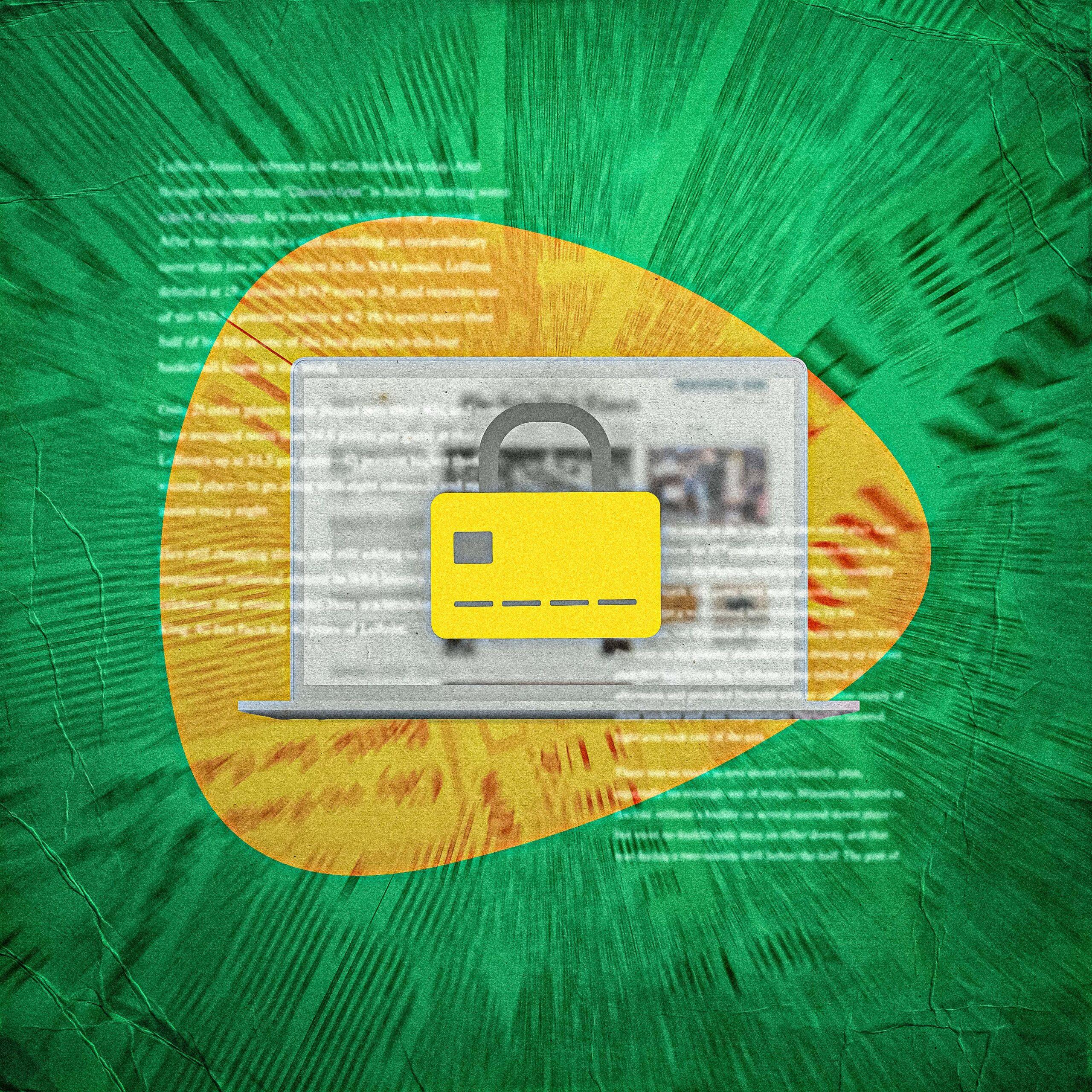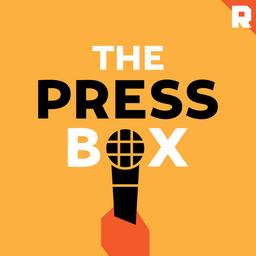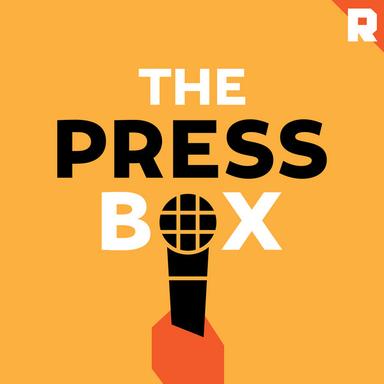A while back, I decided to keep track of every paywall I encountered in the course of my regular web browsing. After I blew by two dozen, I decided to stop. For a few weeks, I’d diligently jotted down publications I couldn’t read, but this record of how much I was missing had begun to bother me. I’m still not sure what coconut crabs can tell us about Amelia Earhart (I’ll get you next time, National Geographic), how former San Diego Padre Rougned Odor feels about having horses (sorry, San Diego Union-Tribune), or why the original Super Mario Bros. movie sucked (apologies, Wired).
Well, no, that’s not totally true. I read about the crabs at Popular Mechanics instead. (They may have eaten Amelia, but probably not.) And I think I have a handle on why Super Mario Bros. sucked. (I’ve seen the movie.) As for Odor and his horses, I remain in the dark. Which is far from the only instance in which, when faced with a paywall, I’ve opted for ignorance over expense. (Though—no offense to Odor—it may be among the least consequential.)
Reading the internet now calls for careful budgeting. Shell out for every well-regarded online newspaper, newsletter, and magazine, and your monthly bill for subscription-based news, analysis, and text entertainment would rival what Dril drops on candles. Even the special deals designed to entice nonsubscribers—“$1 for 1 year,” the Union-Tribune offers, dangling Odor for a dollar in a pop-up “flash sale”—spur difficult questions. Will I use this enough to justify sharing my payment information? (I’m nowhere near San Diego.) Will I remember to cancel before the subscription auto-renews at a far higher rate? (That’s $3.50 per week, in the U-T’s case.) How big of a hassle will canceling be? (All evidence suggests: huge hassle.) How many marketing emails will I get? (I can’t put a price on Inbox Zero.)
These are relevant concerns, considering that even five years ago, 76 percent of leading U.S. newspapers employed some sort of paywall (albeit usually a soft one). Lately, some outlets have torn down their paywalls or made them more penetrable. But plenty of nigh-indispensable publications are putting up walls for the first time. In October, the websites for Reuters and CNN—the most popular news site in the U.S.—went behind the paywall. In December, so did The Verge. CNN.com launched on August 30, 1995, so the end of its almost 30-year run as a site that was open to all seemed to slam the door on an internet epoch.
“The era of free websites is coming to an end and there’s nothing you can do about it,” Lance Ulanoff announced in an October column at TechRadar (which, for the moment, is still free). His article laid out the culprits that typically take the blame: declining ad revenue, AI-driven summaries that dissuade searchers from clicking on sources, audience migration to alternative news sources such as TikTok (for now) and YouTube (which recently cracked down on ad blockers in its own anti-free offensive), and decreasing subsidies from the formerly lucrative television or print properties that once propped up the internet toeholds of legacy media.
Granted, the present, pricier state of affairs isn’t the historical anomaly; the heyday of Napster and unrestricted access to CNN.com was. After all, it’s not as if pre-internet newspapers’ print editions were delivered for free. Still, what’s old being new (and costly) again is jarring to the generations that became accustomed to getting gratis what now requires a credit card. Not only is there no such thing as a free lunch, but there may also be less to read for free on your lunch break.
As Ulanoff acknowledges, though, there is something you can do about the proliferation of paywalls—depending on your appetite for escalade. “We don’t usually willingly enter Paywall land,” Ulanoff wrote, adding, “we find ways to see more than our share of free content.” Yet he also copped to feeling guilty about scaling walls that were erected to protect people in his own profession. “I know I’m the last person who should be doing this, and sometimes I wonder how I can be so cheap,” he confessed.
Been there, felt bad about that. I enjoy legit entry to more subscription-based sites than the average internet time waster. I personally subscribe to many a website and Substack. I also have hookups to many more through The Ringer’s resources—less a perk than a necessity, considering the difficulty of doing one’s job as a journalist when one can’t access other journalism or journalistic tools (as my colleague Joel Anderson recently learned when he was between jobs). Yet the door to Odor—and so much more—is closed to me, too, creating the temptation to sneak through a side entrance.
Hence my hand-wringing. Another colleague, Bryan Curtis, who hosts the Press Box podcast with Anderson, has dubbed 2024 “the year of the media layoff” while conceding that the same label would likely apply just as well to any of the next few years. (Probably the past few, too.) Paywalls are intended to be a life raft for a floundering, distrusted industry, and some evidence suggests that they work. (One recent study of websites that weakened or strengthened their paywalls found that although less permeable paywalls eventually lead to less traffic, “the increase in new subscriptions outweighs the decrease in retention resulting from stricter paywall strategies.”) As a member of the beleaguered media and the former editor in chief of a subscription-based site, wouldn’t paywall flouting make me a traitor to my own kind?
Then again, let the person who has never sneaked past a paywall cast the first stone. As Curtis rhetorically asked me, “Has any of us actually played by the rules all the time, even if they benefit the business?”
I can’t claim to have abided by every paywall. Neither can most other people—even among the small minority who pay for online news. According to the Reuters Institute for the Study of Journalism, only 17 percent of people in 20 worldwide markets spend anything, up from 10 percent a decade ago. In the U.S., it’s 22 percent—and even among people who describe themselves as very or extremely interested in news, 57 percent don’t pay for it online. It’s tough to measure paywall pilfering directly, but based on other recent surveys, roughly 60-70 percent of people report avoiding websites with paywalls, and about 60 percent say they “regularly look for ways to access paywalled content without paying.” That last number is based on self-reported behavior among people who have subscribed to digital publications. (By comparison, 69 percent of Americans say they’ve used someone else’s login info for a streaming service, and 80 percent don’t view password sharing of that nature as a form of stealing.)
If you’re interested enough in online news to try to read a premium product even without paying, you’re probably much more plugged in than the average American. But that doesn’t make you more virtuous. In this period of Peak Paywall, is there any truth to the notion that “information wants to be free,” or is that just something people tell themselves when they want info to be free? In an attempt to assuage my conscience—and, perhaps, yours—I posed a pressing question to several experts in journalism and ethics: How bad is bypassing a paywall?
Margaret Sullivan, the executive director of the Craig Newmark Center for Journalism Ethics and Security at Columbia Journalism School, has “very mixed feelings about paywalls.” She’s pleased that The Guardian, where she writes a regular column, solicits donations in lieu of imposing a paywall, and she recently removed the paywall from her Substack, American Crisis. Like anyone else, her problem with paywalls is partly rooted in the frequent frustration of being barred from opening one-off articles at sites that she has little reason to read regularly. “I also bristle sometimes at hitting the paywall,” she says.
But Sullivan also has more high-minded reservations. “I think it’s really important that people have access to good information,” she says, adding, “There’s a lot of bad free information.” Hard-earned, fact-checked info that demands deeper investment from reporters and publishers, she notes, “is mostly behind a paywall, and the complete disinformation, propaganda, etc. is free for you to participate in at will, so that’s a big-picture worry I have.” She isn’t the only one worried: For the same reason, Richard Stengel argued in The Atlantic this past spring that publications should put their election coverage outside the paywall, and The Verge editor in chief Nilay Patel told Semafor this month, “I think it’s a tragedy that garbage is free and news is behind paywalls.”
If you’re worried about committing a moral transgression by bypassing a paywall on occasion, though, Sullivan more or less says not to sweat it. “Of all the ethical questions out there … maybe there’s a concern, but I wouldn’t send the ethics police out on it,” she says, adding, “We have bigger fish to fry than that.”
One such crisis is the decline of local news, which is widely viewed as deleterious to democracy. Bolstering local news is a focus for Steven Waldman, president and cofounder of Report for America, a program that places up-and-coming journalists with local news organizations and helps pay their salaries. (Essentially, it’s Teach for America, but for journalists.) Waldman has harsh words for anyone who breaches their local outlet’s subscription plan. “Local news won’t survive unless it’s supported by local residents,” he says. “The days when advertising alone would float the operations are gone. It now has to be supported either by subscriptions or donations. So someone [who] skirts the paywall is a free rider who is undermining the quest for high-quality local information.”
I don’t disagree. When I ask about bypassing the paywall of an outlet that isn’t in one’s area, though, he’s far more forgiving: “In the scenario you said, they should be able to read the piece for free. And in that case it might be a bit much to expect them to donate or something like that.” In fact, Waldman puts the onus on the papers for not making it easier for lookie-loos to make a small, one-time investment to unlock a particular piece. “People have talked forever about having a micro-payment system, and yet it’s never happened,” he says. As Curtis put it, “If I had to concoct a defense for shoplifting, it’s that paywalls are still cumbersome and annoying. … So maybe one defense for skirting the paywall is that you’re doing a runaround on a practice that was anti-consumer to begin with.”
Sullivan similarly advocates for local outlets to come up with “a piecemeal way that would allow access.” She also floats the possibility of “some kind of a cooperative” in which one user could sign up for a plan that would grant access to a consortium of local coverage across the country. Waldman says that he hasn’t heard of any efforts for local outlets to offer that type of plan because readers generally aren’t interested in more than one local publication. A pay-per-piece approach would probably have to keep prices quite low to generate interest. The Reuters Institute found that 57 percent of non–news subscribers “would not consider paying anything,” and one of the other surveys cited above determined that the average amount people would be willing to pay per paywalled piece is $1.01.
Craig T. Robertson, a postdoctoral research fellow at the Reuters Institute, calls the paywall debate “a huge topic that basically touches on what the future of the news industry looks like,” which means that there’s more at stake than any individual’s anxiety about being a bit naughty. Robertson says, “I’ve personally used paywall bypassers because I’ve needed to as part of my job. I need to look at a lot of news websites, and things like paywalls and pay pop-ups (not to mention cookie banners) can get very annoying.” He also uses ad blockers, virtual private networks, and other privacy-protecting tools because he’s opposed to information tracking.
In general, Robertson “lean[s] on the side of [paywall bypassers] being morally neutral,” for a few reasons. For one thing, “a very small proportion of people probably use them or are even aware that they exist. So in terms of them eating into any monetary gains, we’re talking about very small figures.” (Especially because, Robertson speculates, the people bypassing paywalls are disproportionately news junkies who resist subscribing because they don’t want to be beholden to any one outlet at others’ expense.) Plus, he suggests, illicit access could pay indirect dividends because “someone getting access to your site via a bypasser might encourage them to sign up if they find your content valuable.”
More importantly, perhaps, “when really important information is behind a paywall, it risks creating information ‘haves’ and ‘have-nots.’ The very people who are going to be put off by paywalls or unable to pay are already the people who are more likely to be marginalized and have less power—both socially and economically. It can be another way news is made to feel ‘not for them.’ So how do you cater [to] people with less economic power? Everything seems to be a subscription these days, and the costs add up.” The same tendency toward churn that’s plaguing streaming services, Robertson says, is also showing up in news subscriptions. “People like to pay for the cheap deal, but cancel once the trial period is over. That gives some indication that something is broken.”
Speaking of everything being broken, Curtis recalls, there was some discussion about the idea of information wanting to be free at the L.A. Times and other news sources during COVID. “You could argue that good, local information about a pandemic that killed a million people plus is exactly the kind of thing that needs to be free,” he says. “On the other hand, if people weren't going to subscribe to the L.A.T. during a pandemic, when were they going to subscribe? The paper was fulfilling its most primary function, and people were like, Wait, I have to PAY?” There’s also the question of how papers are supposed to keep fulfilling their functions if people don’t pay (and if even billionaire owners are eager to cut costs).
Maybe the answer is simply to make a more compelling pitch. “These days, media entities have to have a pitch to readers that’s bigger than ‘Give me your credit card and I’ll give you information,’” Curtis continues. “There has to be a genuine affinity between reader and publication, a relationship, something that would make you want to pay.” If a publication fails to inspire that loyalty, Curtis concludes, it’s “not exactly a reason to pardon everybody, but it’s in the argument somewhere.”
Or, as Robertson says, “Some of the answer is just knowing who you exactly want to reach and engaging with them. Listen to what people want. Provide them a real service. Make news useful to them.” Easy.
Once a reader resolves to take the paywall-bypassing plunge, they can pursue any number of paths. Per an aforementioned survey, most aspiring paywall bypassers try to circumvent reading restrictions by using their browser’s incognito mode; others paste a story headline into Google or create new accounts to activate free trials. Still others rely on extensions or websites that perform the service for them.
For instance, there’s the plainly named removepaywall.com, which provides the following explanation for its existence in an FAQ: “I am tired of being recommended an article just to be hit by a paywall or a login page. In my opinion, they clickbait the user to go on their site and it seems unfair.” I wondered what sent the site’s creator over the edge into paywall piracy, but emails to the contact address went unanswered.
Then there’s 12ft.io, whose home page now promises to “remove popups, banners, and ads from any website,” enabling its users to “browse a cleaner web.” It used to proclaim, “Show me a 10ft paywall, I’ll show you a 12ft ladder,” alongside a promise to “bypass any paywall” and a display of The Economist’s de-paywalled website as a proof of concept. No answer from that address either.
I did get a (somewhat dubious) response from archive.today, a privately (and mysteriously) financed site that functions something like the Internet Archive (which isn’t affiliated with archive.today). “Our platform is designed to archive and preserve web content,” archive.today’s “support team” told me. “The phenomenon of paywall bypassing is not an intentional feature of our service but rather an unintended consequence related to the limitations of JavaScript support compared to full browsers.” The reply also stated, “Our primary objective is to provide users with a tool for accessing historical web content. … We understand the challenges posed by the increasing prevalence of paywalls, and we acknowledge the importance of sustaining quality journalism.”
Archive.today is one of a number of sites—from the Internet Archive to PrintFriendly to txtify—that purport to serve one function but also sometimes bypass paywalls. Other old staples of paywall bypassing have been taken down (the “Bypass Paywalls” Chrome extension) or have disappeared (the now-defunct outline.com) as authorities play paywall bypasser Whac-A-Mole. New alternatives always seem to spring up; people want information to be free. Of course, when you get right down to it, people would prefer most everything to be free.
Does this ongoing anti-paywall campaign speak to some larceny inside our species’ souls, or to some secret righteousness? In search of perspectives somewhat further removed from the media world, I canvased several academics who focus on philosophy and ethics. Philosophers love an ethical conundrum, so their combined responses ran longer than this article (feel free to read them in full). Here, I’ll condense each response into a few sentences:
- Louise Antony, professor emerita of philosophy at University of Massachusetts Amherst: “Because it’s a matter of property, and because property is a social construction rather than a natural right, there is a sense in which it’s up to us whether paywalls are things we have a duty to respect. And insofar as it’s recognized that the complex legalities of copyright are conditioned largely by the interests of the relatively more powerful players in the publishing industries, it may seem that one is justified in making relatively small-scale violations. And finally, since it looks like ‘everyone is doing it,’ it may well be that paywalls are more or less like speed limits—there’s what’s technically illegal, and then there is what’s socially and even legally tolerated. … The challenge going forward, though, is how the function of compensating creators, once technology makes copyright into a joke, is going to be fulfilled.”
- D. Justin Coates, professor of philosophy at the University of Houston: “If we apply the ‘do your fair share’ principle to paywalls, then it will be OK to circumvent some paywalls if you’re already supporting ‘your fair share’ of journalism. Maybe if you’re rich, you should support more. And maybe, since it’s predictable that e.g., NYT and WaPo will be well-supported, you’d do better to support smaller outlets. But if you’re already giving enough such that, were everyone who consumes journalism to give that much, no outlet would be unable to fairly pay their employees, then it seems to me you’ve done something close to your fair share.”
- Barry Lam, professor of philosophy at UC Riverside: “There is real urgency to finding a model that funds journalism, large and small, and that sites and hacks bypassing paywalls are helping people do something bad, but not that bad, with a possible side benefit of steering media companies in a better direction. … Taking something for free through a hack is wrong, but some acts are worse than others, and this is the kind of wrong that, although [it] collectively can lead to the downfall of journalism, individually is like taking a shot of water from a privately owned fountain. To me, what these hacks show is the need for media companies to come up with fair pricing and innovative charging schemes that make people feel like it is worth paying for that shot of water.”
- Todd Lekan, longtime professor of philosophy and incoming dean of the College of Arts and Humanities at New Mexico Highlands University: “On the one hand, there are principles that forbid theft from authors whose investigative reporting is the product of labor which they seek compensation for through the companies that employ them. But, on the other hand, it seems that the companies that provide access to the content are extracting profits from this journalistic labor in ways that might be exploitative of the journalists and the news consumers. … We could do so much more—think PBS on a grand scale—to publicly fund or subsidize serious journalism. But I don’t think that this moral claim adds support to the judgment that a person is permitted to secretly obtain free content that is being sold for a fee. … The solution is structural: A reconstruction of public institutions which create spaces for common goods like scientific inquiry and information about vital matters.”
- Ben Lennertz, associate professor of philosophy at Colgate: “The first thing that comes to mind is the question: What would happen if everybody did this? And my inability to know how to think that through suggests why this isn’t an open-and-shut ethical situation. (1) The funding models of many media sources would be destroyed and we’d have far less information gathering and sharing than we have now. This would be bad, so we probably shouldn't bypass paywalls. (2) But, of course, these media outlets wouldn't just roll over; I’m sure they’d try to adapt. So, on second thought, it seems that the media outlets would shift their funding models. Would that be fairer? Would it allow for greater flow of information and at least a similar amount of research and analysis? Maybe? So maybe bypassing a paywall is permissible. In terms of what would actually happen, I suspect it would be a mix of (1) and (2), so I’m ambivalent on whether it is permissible or not, but I lean toward thinking it is not permissible.”
- Neal Tognazzini, professor of philosophy at Western Washington University: “It matters how you are intending to use the information you are accessing. Academics pretty regularly run into paywall problems, since most journals are not open-access, but in those cases I don't have any qualms about circumventing the paywall since I’m mostly trying to access the article for the purpose of assigning it in a class, or citing it in my own research. (Though also in that case I think it matters that the authors don't get paid for publishing their research, and in almost every case they would just be ecstatic that someone actually wants to read something they wrote.)”
One professor invoked the saga of Sci-Hub, the twice-sued, shadowy repository of otherwise paywalled academic research papers. Another mentioned the possibility of a principled, paywall-expressed stand against a specific publisher or executive, such as Jeff Bezos of The Washington Post. Multiple professors admitted to bypassing paywalls themselves, whether in their personal or professional capacities. One could claim that journalists, like professors, would be justified in bypassing paywalls to better educate their audiences, provided that they also cite their sources.
I’m not sure I could keep a straight face while making that case; it sounds so self-serving. After consulting so many experts, though, the ethical ground under my feet felt firm enough for me to read that Union-Tribune Odor interview I’d put off for so many months. It contained an exchange in which Odor explained how, several years earlier, Rangers owner Ray Davis had given him two of his horses to seal a deal. At the time of the interview, Odor’s lifelong love of horse riding—his favorite hobby besides baseball—had blossomed into a passion that resulted in a stable approximately 70 strong.
“You go ride a horse, you feel free,” Odor said. “You don’t worry about your phone, you don’t watch nothing, you just … enjoy.” I went in search of several philosophers and found one in Rougned Odor. Maybe that wisdom was worth the $1 deal, however hard it might be to cancel my account.
“If a philosopher is being honest,” Professor Tognazzini says, “the answer to almost every ethical question is just, ‘Well, it depends.’” Sometimes that’s true of journalistic questions, too.




